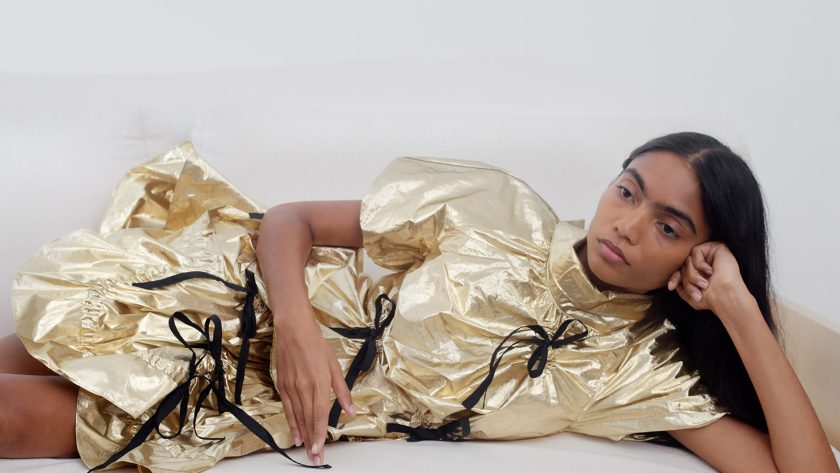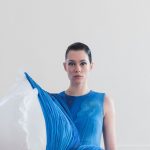At times, the designer Cynthia Merhej has cursed the phoenix-like name she gave her fledgling label when she was starting out in 2016. In some senses it has left her feeling trapped and unable to throw in the towel—beginning again seems a foregone conclusion when your label is named after an act of rebirth, doubled for emphasis. And she really had wanted to pack it all in earlier this year, owing to particularly complicated circumstances she is unable to disclose that left her struggling to exert control over her label and to make ends meet.
When even highly established fashion houses are faltering, it’s unsurprising that emerging designers are tapping out of fashion’s rat race. Happily for Merhej’s fans—of whom there are many, and a discerning bunch they are too—she persisted. Currently based between Paris and Beirut, the Lebanese designer has recently come out the other side of a period of reviewing, revising, and refining. She has sought out suppliers and factories in Lebanon to assist her mother (who has her own atelier in her basement in Beirut) with production. She has reworked all her patterns and fine-tuned the fit of her existing garments. She has scrutinized her best-received designs to date and rejuvenated them, and rejigged her wholesale relationships to favor physical over digital stores. (“I have online fatigue,” she said.) And she has found the time to develop shoes: sleek leather ballet slippers with sporty rubber soles, made at a family-owned factory in Lebanon, and embellished with silk bows she hand makes in her mother’s atelier.
Her spring collection was beautifully put together, styled for the lookbook by Claudia Sinclair. But it’s when one analyses the pieces individually on the rack that one appreciates the thought and skill that has gone into each item. “I wanted everything to be able to be layered over everything else,” Merhej explained. “And I wanted to make everything really wearable, so that even our signature tulle skirts didn’t look too pouf-y and princessy, but could be worn every day, maybe even over jeans.” The highlights: neat little military-style, technical-twill blazers that segue into delicate tulle trims; a dove grey, bubble-hemmed mini dress in a sportswear taffeta that can be layered over knits or worn against the body; gathered tulle skirts, shirts and dresses that form a clever contrast with beautifully cut cotton shirts; layered cotton day-dresses with charming little bows and fastenings; cropped cardigans with slashed backs and trailing tulle ribbons embroidered with lines of poetry by the Palestinian poet Mahmoud Darwish.
Of the latter, she said: “I just loved how they were able to talk about these very difficult subjects, sometimes violent, in a very soft, beautiful way.” For spring, Merhej had envisioned a protesting woman, walking on the street with white banners flying behind her. “I wanted to mix the idea of something that feels a bit more crisp and structured with a lot of softness, lightness and fragility,” she said. “I felt like I had to be a warrior, I had to keep going, and at the same time I felt inside like I was gonna crack!” She’s right to pour her vulnerability into her clothes. After all, it lent the collection a romance far more powerful than anything a marketing department could have dreamt up.



